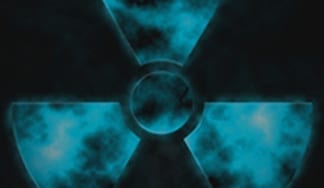The Department of Health and Human Services (HHS) has issued a funding opportunity announcement (FOA) on the Centers for Medical Countermeasures against Radiation Consortium (CMCRC), soliciting applications to participate in a network of national research centers to develop comprehensive medical countermeasures in the event of radiological or nuclear emergencies.
Applications are sought that propose multidisciplinary basic and translational research to support the development of new medical products that will assess, diagnose, mitigate and/or treat the short- and long-term consequences of radiation exposure after a radiological or nuclear terrorist event.
Under normal conditions, the hematopoietic, gastrointestinal, cardiovascular, and central nervous systems as well as skin and mucosal tissues interact with each other to maintain physiological homeostasis. It is clear from data obtained from prior radiological and nuclear accidents that these homeostatic mechanisms may be severely disturbed due to the compromise and progressive physiological failure of these interdependent organ systems, potentially leading to multiple organ failure and mortality.
The management of radiation casualties with multi-organ dysfunction syndrome is extremely complex and effective medical countermeasures are lacking. Therefore, there is an urgent need to develop clinical tools and new treatment strategies to treat multiple organ failure and restore physiological functions of critical organs after exposure.
Additionally, a significant burden of radiation-associated morbidity and mortality is attributable to the delayed and late effects of acute radiation exposure (DEARE), including persistent systemic inflammation, accelerated immune aging, lung fibrosis and pneumonitis, and increased frequency of cardiovascular and metabolic diseases. The understanding and elucidation of DEARE are critically important to inform public health officials on future medical resources and capabilities that may be needed in the years and decades following a public radiation emergency.
The goals of this FOA are to produce new techniques and devices to:
- Measure radiation exposure in the human body
- Follow biomarkers of tissue damage and recovery
- Develop novel therapies to minimize tissue damage
- Restore normal physiological function and improve survival post-event
The CMCRC will consist of 5-7 Centers (each with a minimum of three research projects, one Administrative Core and optional Service Cores); four Consortium Cores (Coordinating Center Core, Opportunities Fund Management Core, Radiation Physics Core, and Radiation Survivor Core), a Steering Committee and its subcommittees, a Consortium External Advisory Committee (CEAC), and other committees as needed.
Further details are available under: RFA-AI-14-055. The funding announcement is a reissue of RFA-AI-09-036. All qualified investigators are invited to apply; prior funding under this program is not required. Letters of intent are due September 3, 2014.



